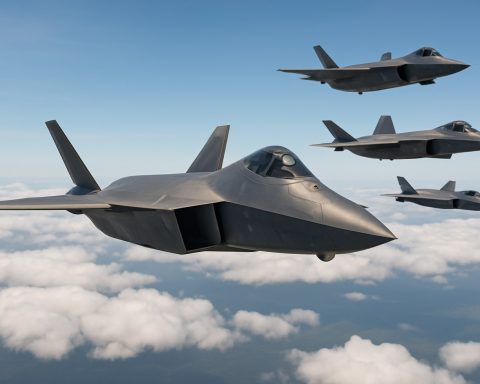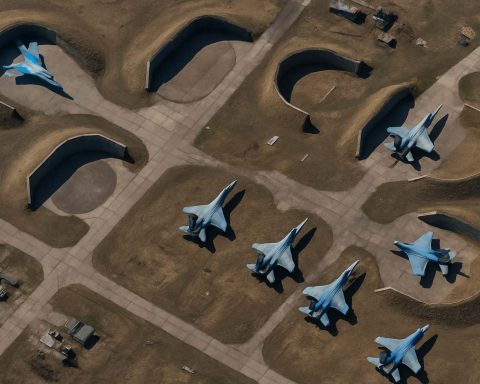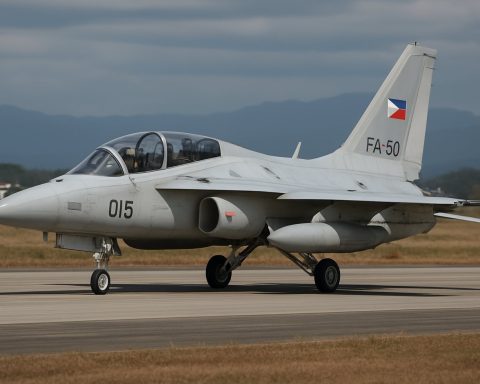- China and Egypt have initiated joint air force exercises named “Eagles of Civilisation 2025,” marking a potential shift in global alliances in the Middle East.
- The exercises signify more than military collaboration, indicating evolving diplomatic relations and China’s expanding influence in North Africa.
- Egypt seeks to diversify its military partnerships, potentially altering its long-standing reliance on U.S. aid and increasing its regional and technological stature.
- China’s involvement presents a strategy to enhance geopolitical influence from the Mediterranean to the Sahara, coupling military prowess with infrastructure investments.
- The exercises highlight a strategic move by China to deepen ties with Egypt, offering advanced military technology and investment incentives.
- The realignment of military alliances is a complex decision for Egypt, involving economic implications and strategic recalibrations.
- This collaboration is being closely watched by other global and regional powers, who are considering the potential impacts on the balance of power.
The serene silhouette of the Egyptian pyramids has always been a testament to a steadfast past, yet recently, it played backdrop to a scene of dynamic future potential—the roar of Chinese fighter jets slicing through the desert sky, signaling a strategic tango between two nations striving to redefine influence in the Middle East.
Beijing’s military maneuvers, captured in cinematic displays unfurling over the golden dunes and ancient stone, mark the debut of joint air force exercises between China and Egypt. This aerial ballet, dubbed “Eagles of Civilisation 2025,” hints at a subtle shift in global alliances, as Egypt explores fresh partnerships beyond its traditional allies.
The significance of these exercises transcends the mere exchange of military tactics; it’s an evolution of diplomacy through the wings of fighter planes and the hum of helicopters. China’s ambitious involvement reflects its widening embrace of North Africa, as it invests billions in security and infrastructure, while the United States appears to pivot inward, redistributing its global focus under past administrations.
These maneuvers underscore Egypt’s desire to cement its status as a formidable force among Arab and North African nations, amidst the delicate balance of power in a region fraught with unpredictability. The drills illustrate China’s desire to court Cairo with the promise of cutting-edge warfare technology and deeper ties, attempting to fuel Egypt’s ongoing modernization efforts with innovations like satellite manufacturing facilities for military surveillance equipment.
However, neither country undertakes this transformation lightly. For Egypt, the prospect of realigning its military alliances comes tethered to the economic reality of high costs and potential shifts in U.S. aid, long a financial backbone for Egypt’s armed forces. Yet, the allure of diversifying defense options could open new pathways in both international stature and tech advancement for Cairo.
For China, engaging Egypt through these drills serves dual purposes: a demonstration of military prowess and an entry point for broader geopolitical influence covering from the Mediterranean to the Sahara. As the ink dries on this freshly penned chapter of cooperation, spectators from Washington to Riyadh watch closely, aware that such partnerships could alter the strategic calculations that uphold longstanding balances of power.
In the intricate mosaic of international relations, the sky over Cairo isn’t merely a stage for military theater—it’s a canvas where the colors of allegiance are gradually being redrawn, forecasting a nuanced game of chess across continents. As Beijing places its pieces, riding the currents of history and ambition, the world waits to see how this bold venture into the blue impacts the ancient land of the Pharaohs and its neighbors.
Unveiling the New Strategic Alliances: China and Egypt’s Aerial Collaboration
Expanding Military Landscape: China’s Foray into Egypt
The recent joint air force exercises between China and Egypt, dubbed “Eagles of Civilisation 2025,” represent a significant milestone in the evolving military and diplomatic relationship between the two nations. This cooperation not only showcases China’s expanding influence in the Middle East and North Africa but also highlights Egypt’s strategic move towards diversifying its military partnerships beyond traditional Western alliances.
Why is this Collaboration Significant?
– Shift in Global Alliances: The collaboration marks Egypt’s exploration of new alliances, potentially reducing its reliance on longstanding partners like the United States. According to experts, this shift could have significant geopolitical implications, with the potential to alter power dynamics in the region.
– Modernization of Military Capabilities: For Egypt, partnering with China presents an opportunity to modernize its military technology. China’s offer of advancements in warfare technology, including satellite manufacturing for surveillance, could bolster Egypt’s defense capabilities significantly.
– Economic Considerations: Diversifying military alliances comes with economic challenges. Egypt must weigh the benefits of new technology and training against the high costs and potential reductions in U.S. aid, historically crucial to its military funding.
– Strategic Geopolitical Influence for China: Engaging in military drills with Egypt allows China to strengthen its presence from the Mediterranean to the Sahara. This move is seen as a strategic endeavor to enhance its geopolitical influence across North Africa.
Pressing Questions & Insights
1. How does this affect U.S.-Egypt relations?
– The United States has long been a key ally of Egypt, providing substantial military aid. This partnership with China could cause a reevaluation of U.S. aid packages, either as a punitive measure or as a negotiation tactic to maintain its influence in Egypt.
2. What technological advancements do these exercises introduce?
– China’s involvement introduces sophisticated military technology, including cutting-edge fighter jets. The exercises are a pathway for Egypt to access advanced aerial and satellite technology, which could significantly enhance its surveillance and defense capabilities.
3. What are the potential risks for Egypt in this partnership?
– While diversifying alliances offers technological benefits, it may also expose Egypt to the risk of becoming a geopolitical battleground between global superpowers. Balancing these relationships requires careful diplomacy to maintain regional stability.
Real-World Use Cases and Potential Outcomes
– Defense Enhancement: By adopting new military technologies from China, Egypt can enhance its defense infrastructure, making it a formidable regional power.
– Economic Implications: If successful, Egypt’s shift could prompt similar moves by other nations in the region, potentially leading to a realignment of global military and economic relationships.
Pros & Cons Overview
Pros:
– Access to advanced Chinese military technology
– Strengthened geopolitical stance in MENA region
– Diversified international alliances
Cons:
– Potential strain on U.S.-Egypt relations and aid
– High economic cost of transitioning military alliances
– Risk of entanglement in major power rivalries
Actionable Recommendations
1. Strategic Assessment: Egypt should conduct a thorough analysis of long-term implications and benefits of deeper ties with China, especially regarding technology transfers and military readiness.
2. Diplomatic Balance: Maintaining open communication channels with both Western and Eastern powers is crucial for sustaining balanced diplomatic relations.
3. Infrastructure Investment: Leveraging Chinese investment in infrastructure could further Egypt’s domestic development goals while securing its role as a regional leader.
For further insights on global geopolitical dynamics, visit the main domain ofForeign Policy and BBC.







